Get Best Treatment for Age-Related Macular Degeneration
- Affordable and Best AMD Treatment By the Top-Rated Surgeons/Doctors
- Treatment With Most Advanced Technologies.
- Get Online/Offline Consultation Post AMD
FREE Tele-Consultation
Book Appointment or Video Consultation online with top eye doctors"*" indicates required fields
"*" indicates required fields
What is Age-Related Macular Degeneration?
Age-related Macular Degeneration is a problem associated with the retina. It happens when the central light-sensitive part of the retina, called the macula, gets damaged or wears down. The macula is responsible for sharp, detailed, central Vision.
Age-Related Macular Degeneration usually occurs in old age. The central vision of a person is lost, but the peripheral vision still remains normal. For instance, imagine you are looking at a watch with Age-Related Macular Degeneration, you might see the numbers in the watch but not the hands.
Macular Degeneration is the leading cause of blindness in developed countries as well as in populations above the age of 65 years.
Types of Age-Related Macular Degeneration
1.Dry ARMD
It is the most common type of Macular degeneration and yet, there is no treatment for dry Macular degeneration. Patients with Dry Age-Related Macular Degeneration have yellow deposits in the retina, called Drusen. Few small Drusen may not cause changes in your vision. But as they proliferate, they might dim or distort your vision. If the condition gets progressively worse, the light-sensitive cells in your macula get thinner and eventually die. In the atrophic form, you may develop blind spots in the centre of your vision and eventually Lose Central Vision. Loss of Central Vision creates a lot of troubles, especially in reading and driving.
2. Wet ARMD
This form is less common but much more serious. Wet Age-Related Macular Degeneration is when the new abnormal blood vessels grow underneath the retina. These blood vessels may leak blood or other fluids, causing the macula to scar. That’s why straight lines look zigzag and wavy, you might develop blind spots and suffer complete loss of Central vision. Gradually it leads to permanent loss of vision. In this case, vision loss is faster than Dry Age-Related Macular Degeneration. Many people don’t realize they have Age-Related Macular Degeneration until their vision gets blurred. This is why it is important to have regular appointments with your ophthalmologist.
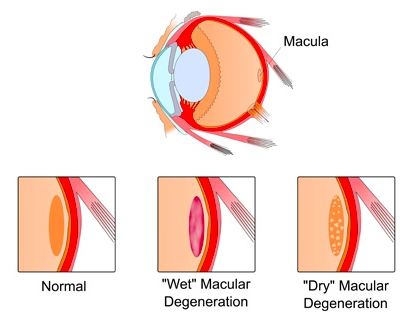
Causes of Age-Related Macular Degeneration
The exact cause of AMD is not known, but it has been linked to several risk factors. They include:






Diagnosis of Age-Related Macular Degeneration
AMD causes your vision to change over time. You may not notice the changes when they happen. So, a routine eye examination can spot age-related macular degeneration. An eye specialist would easily be able to detect the presence of Drusen- tiny yellow deposits under the retina or pigment clumping. The Ophthalmologists use an Amsler grid to diagnose and recognize the signs of Age-Related Macular Degeneration.
Prevention of Age-Related Macular Degeneration
Ophthalmologists suggest more vitamins and antioxidant supplements to prevent Age-Related Macular Degeneration. They suggest you consume healthy food with vitamin C, D, E, beta carotene, zinc, and copper. Which in turn decreases the risk of Age-Related Macular Degeneration.
The recommendation as a daily dose is:
- Vitamin C :500mg
- Vitamin E:400 mg
- Lutein :10 mg
- Zeaxanthin:12 mg
- Zinc: 20-50 mg
- Copper: 2mg
Other Measures
- Cessation of smoking may slow progress.
- Consuming green leafy vegetables to be used liberally.
- Regular consumption of oily fish may also be useful.
- Protective measures against excessive sunlight exposure should be considered
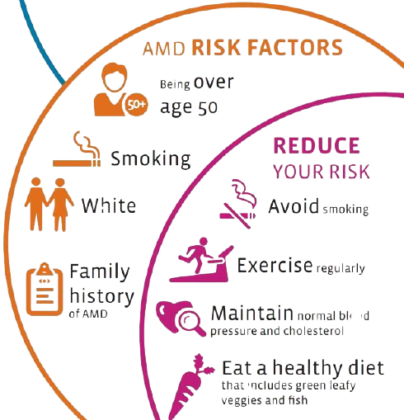
Treatment of Age-Related Macular Degeneration
1. Transpupillary Thermotherapy
A diode laser (810 nm) may be considered for sub-foveal occult CNVM (choroidal neovascular membrane).
2. Photodynamic Therapy (PDT)
In this treatment, a photosensitizer or light-activated drug known as Verteporfin is injected intravenously. Which is used to damage the abnormal blood vessels inside the retina? The light-activated dye then disrupts cellular structures and occlusion of CNVM (choroidal neovascular membrane) with minimum damage to the adjacent photoreceptor and capillaries.
3. Low Vision Aids
These devices have specialized lenses or electronic systems that help produce enlarged images of nearby objects. These help people whose vision has been lost from Age-Related Macular Degeneration make the most of their leftover vision.
4.Anti-Angiogenesis Drugs
These medications block new blood vessels from developing and prevent leakage from the abnormal blood vessels within the eye that cause wet Macular degeneration. This treatment hedge brought a major change in the disease and many patients have regained their lost vision.
5.Laser Therapy
To damage the leaky actively growing blood vessels, laser light can sometimes be used.
6. Retinal Translocation
A procedure to destroy abnormal blood vessels under the center of your macula, where your doctor can’t use a laser beam safely. In this procedure, your doctor rotates the centre of your macula away from the abnormal blood vessels to a healthy area of your retina. This keeps you from having scar tissue and more damage to your retina. Finally, the doctor uses a laser to treat the abnormal blood vessels.
7. Submacular Surgery
Submacular surgery is usually used to remove the Choroidal neovascular membrane (CNVM).
ARMD Treatment Cost
The complete cost of ARMD treatment depends upon the “type of procedure” that you go through. The cost of treatment varies between Rs.10,000 to Rs.50,000. Below are the estimated costs of some of the procedure, injections and testing involved in treatment of Age-Related Macular Degeneration.
| Age-Related Macular Degeneration treatment cost | |
| Treatment | Charges (₹) |
| PDT treament | 10000-15000 |
| Injection Avastin | 10000-15000 |
| Injection Razumab | 20000-30000 |
| Injection Accentrix | 30000-35000 |
| Injection Eyelea | 45000-50000 |
Eye Mantra foundation provides free treatment for the “underprivileged sections of society”. So anyone who is unable to afford the treatment expenses, can contact us to get this treatment done free of cost or at a very nominal price.
Best Eye Hospital for Age-Related Macular Degeneration
Eye Mantra is one of the leaders in age-related macular degeneration treatment with over 10,000+ eyes operated so far by its doctors.
All of the treatment modalities of age-related macular degeneration are available at Eye Mantra Centers, along with sophisticated diagnostic equipment, lasers, operation theatres, with highly trained and acclaimed retina surgeons.
Consult with our expert eye doctors today. We strive to improve the quality of life and provide the best eye care facilities at the most affordable prices.
Our Team
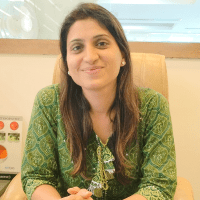
Cataract, Retina, Glaucoma, LASIK
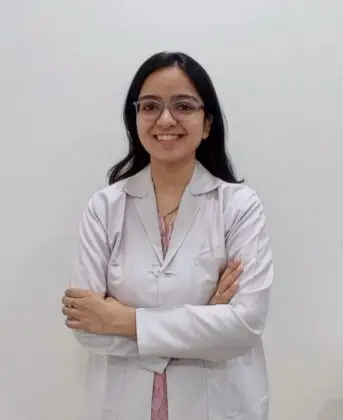
Retina Specialist

Cataract, Retina, Glaucoma, LASIK
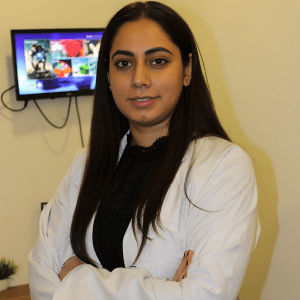
Cataract, Retina, Glaucoma, LASIK
FAQ's
Age-related Macular Degeneration is a problem associated with the retina. The macula is the light-sensitive part of the retina and is responsible for sharp, detailed and Central Vision. It happens when the central light-sensitive part of the retina, called the macula, gets damaged or wears down.
The exact cause of AMD is not known, but it has been linked to several risk factors. These include having excess weight and high blood pressure, smoking, and having a family history of the condition.
Macular degeneration can affect anyone since there are multiple types of Macular degeneration, however AMD is the most common type of macular degeneration.
Yes you can develop Dry and Wet forms of macular degeneration in both eyes.
No, having dry and itchy eyes is not the same. Dry and itchy eyes are caused in front of the eyes, while Dry Age-Related Macular Degeneration is caused at the back of the eye, in the retina.
Absolutely not, AMD is a degenerative disease and not contagious. It cannot spread like a normal cough and cold from one person to another.
No, AMD is not painful. In most of the cases patients do not even realise they have AMD before it is too late. If you have pain in your eyes, you might want to consult an Optometrist because it could be due to some other eye ailments.
Neurovascular Age-related Macular Degeneration is also called Wet AMD Wet Age-Related Macular Degeneration is when the new abnormal blood vessels grow underneath the retina. These blood vessels may leak blood or other fluids, causing the macula to scar.


